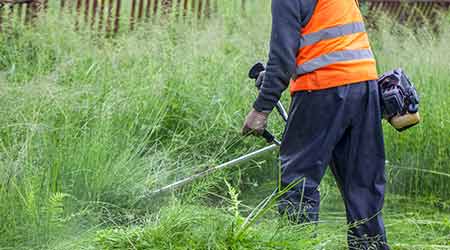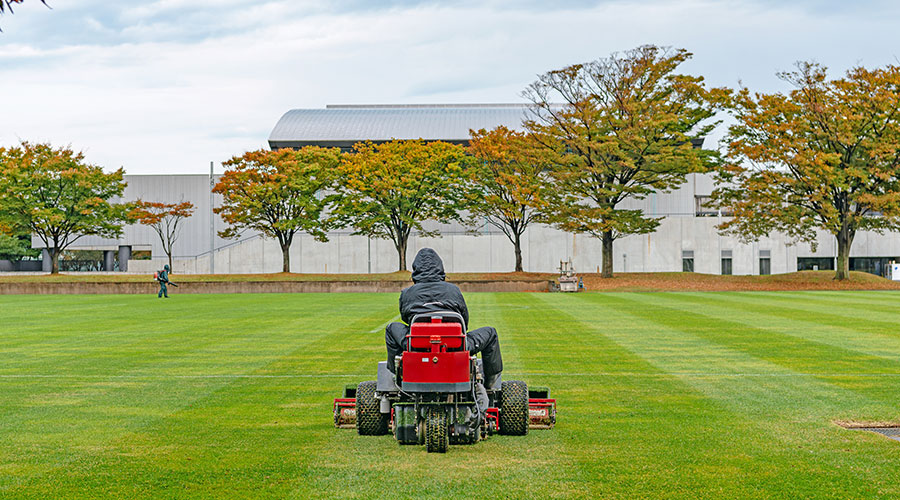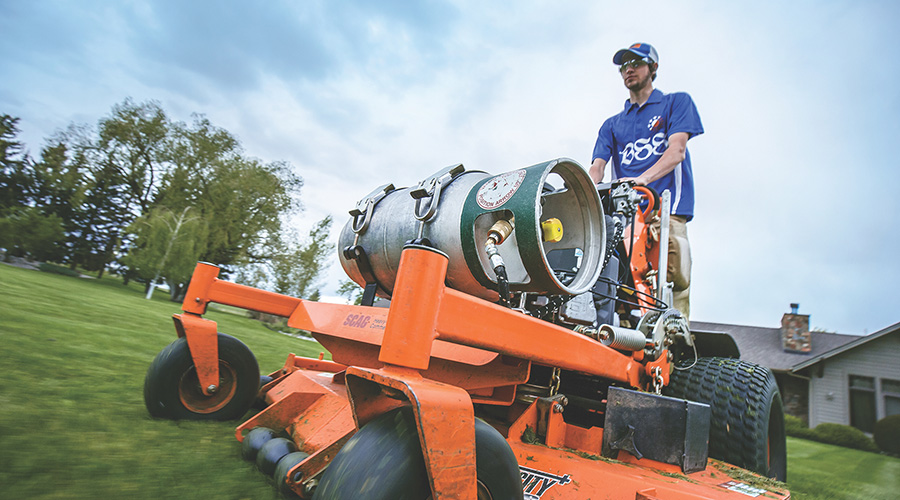 Trimmers, edgers and blowers have all gone through recent technology changes that include cordless and battery powered options.
Trimmers, edgers and blowers have all gone through recent technology changes that include cordless and battery powered options.Proper Grounds Tools Can Lead to Greater Productivity
Managers who specify the proper grounds tools based on staff needs can increase department productivity.
Effective specification of handheld grounds equipment involves much more than assessing a product’s first cost. Managers must take into a number of considerations.
Greater productivity and savings often result from specifying multi-task equipment, which reduces first cost, as well as spare parts costs. For example, blowers with reverse rotation can perform leaf pickup in the fall, clear grass clippings, mulch in the spring and summer, and clear snow in the winter. A trimmer can converts to an edger, enabling users to perform a wider range of tasks. Combination blade trimmers can trim hedges, shrubs, and low parts of trees with the same backpack trimmer and a pole attachment.
Typical factors to weigh when specifying handheld grounds equipment include:
• the type of power — cordless electricity or gasoline for larger areas, or corded electricity for smaller areas; weight
• multi-tasking capability
• power to weight
• noise, with fewer than 70 decibels at 50 feet desirable
• vibration minimization to improve ergonomics and handling and extend service
• grip design, balance, and handling flexibility
• padding on the back of backpack and harness to enhance user comfort.
Managers also need to consider a host of more focused issues. What personal protective equipment — for example, safety glasses with side shields or goggles, gloves, safety shoes, ear protection — does the manufacturer recommend? Are proper equipment covers provided to keep the operator away from hot spots and moving parts and to protect hoses from damage. Many vendors offer loaners to evaluate these factors ensuring the right grounds care equipment.
What spare parts inventory does the equipment require? The answer depends on type of equipment. For example, smooth and reliable operation of gasoline-powered equipment requires fuel, a spark, and open-air flow to and from the cylinder. That means inventory must include spark plugs, starters, hoses because ethanol gasoline deteriorates them, fuel with the exact, proper gas-to-oil ratio, air filters, and the proper repair tools for removing and installing parts.
Trimmers require replacement string of the proper gage. Edgers require spare blades. For off-season overhauls, mechanics might need motors and engines to perform major replacements. For electric equipment, starter switches are subject to failure, and mechanics might need to replace cords if damaged.
Managers also need to be sure warranties contain clear understanding for both labor and material. What is the length of each type of warranty? Consumer-equipment warranties can be just two years, while commercial equipment warranties are five years. Will replacements be new or rebuilt?
In addition to price and quality, managers should consider the availability of service and parts. If equipment maintenance is performed in-house, are maintenance manuals, training, and spare parts available to keep equipment in good operating condition and keep uptime high. Managers should calculate staffing for repair work either as staff added to the grounds crew or as added staff in the toolroom. If staff is added to the toolroom, can repairs be done more quickly during the grounds care season?
Is there an annual off-season preventive maintenance (PM) schedule to minimize repairs needed during the grounds care season? Does the PM include checking batteries and lubrication, sharpening blades and replacing worn parts?
If equipment maintenance is outsourced, does the vendor have a portable shop that does the work onsite to save time? Does the vendor offer pickup and delivery? What is the turnaround time? Is off-season PM offered? Understanding these issues at time of purchase ensures a clear understanding of roles, responsibilities and response times.
Thomas A. Westerkamp is a maintenance and engineering management consultant and president of the work management division of Westerkamp Group LLC, www.westerkampgroup.com.
Related Topics:














